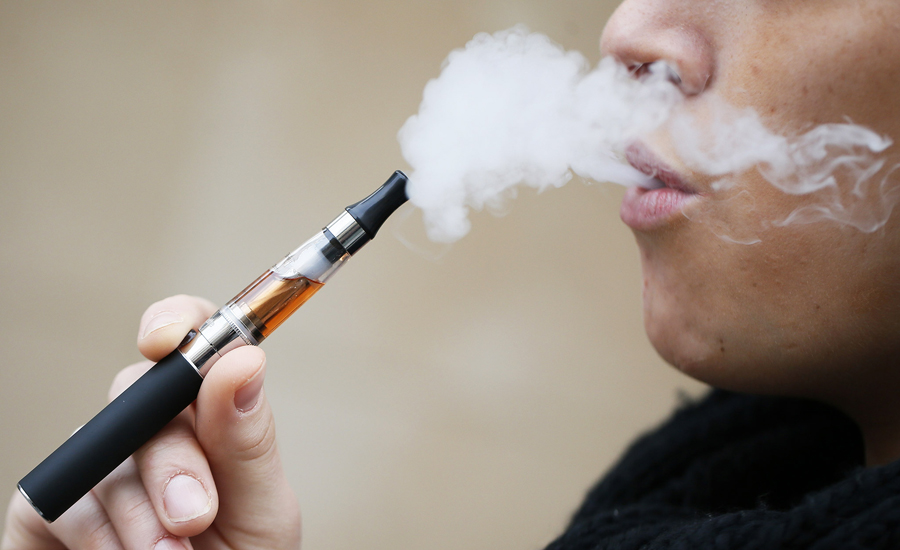How e-cigarette ads might sway teens to try tobacco products

NEW YORK – When non-smoking teens see ads for e-cigarettes, and are curious about the products advertised, perhaps even identifying with a favorite brand, they might also be more susceptible to taking up cigarettes, a new study finds.
For the study, researchers showed a nationally representative sample of 10,751 U.S. teens advertisements for a wide variety of tobacco products including traditional cigarettes, cigars, chewing tobacco and e-cigarettes. Overall, the teens were more receptive to ads for e-cigarettes than other products and television ads were most likely to prompt brand recall.
"The imagery used by tobacco companies focuses on the aspirations of young people including having fun, being independent, sophisticated, socially accepted, popular, etc.," said lead study author John Pierce of the University of California, San Diego.
"Those who have an emotive response to these aspirational images are more likely to see use of the product as a way to achieve their aspirations," Pierce said by email. "It is hypothesized that in adolescents who are committed never smokers, recall of tobacco product advertising will be associated with first movement toward product use within a one-year time frame."
Big U.S. tobacco companies are all developing e-cigarettes, battery-powered gadgets with a heating element that turns liquid nicotine and flavorings into a cloud of vapor that users inhale.
For the past decade, public health experts have debated whether the devices might help with smoking cessation or at least be a safer alternative to smoking traditional combustible cigarettes, or whether they might lure a new generation into nicotine addiction.
Fewer teens smoke today than a generation ago, but declines in traditional cigarette use have stalled and e-cigarettes have become increasingly popular in recent years. As of 2015, an estimated 16 percent of U.S. high school students used e-cigarettes, compared with about 9 percent for traditional cigarettes, according to the U.S. Centers for Disease Control and Prevention.
While television ads for traditional cigarettes have been illegal in the U.S. for decades, e-cigarette ads are currently allowed on TV, researchers note in Pediatrics.
In the study, Pierce and his colleagues examined how receptive or curious non-smoking teens were about different tobacco products and whether they had a favorite image or advertisement. They also looked at how susceptible the adolescents might be to trying tobacco products based on their ability to recall specific brands they saw in the ads.
The researchers showed each study participant a random selection of five ads each for cigarettes, e-cigarettes smokeless tobacco and cigars based on 959 different promotions that had recently been used to advertise these products.
Overall, 41 percent of the younger teens in the study and half of older adolescents were receptive to at least one tobacco advertisement, the study found.
Across each age group, teens were most receptive to ads for e-cigarettes, followed by traditional cigarettes and smokeless tobacco.
E-cigarette ads shown on television had the highest recall.
Compared to teens in the study who were not at all receptive to the ads, youth who had the highest level of engagement with the promotions were more than six times more likely to be susceptible to trying tobacco products, the study found.
The study isn't a controlled experiment designed to prove whether or how ads may directly influence tobacco use.
Another limitation is that researchers didn't have data to show whether or not teens actually used tobacco products after viewing these ads, the authors note.
Even so, the findings suggest that non-cigarette ads for tobacco-related products may be damaging for adolescent health, Rebecca Collins of Rand Corporation in Santa Monica, California, writes in an accompanying editorial.
"This study provides some very provocative data suggesting that the marketing of e-cigarettes, which is not regulated, might be leading to cigarette smoking among teens," Collins said by email. –Reuters







